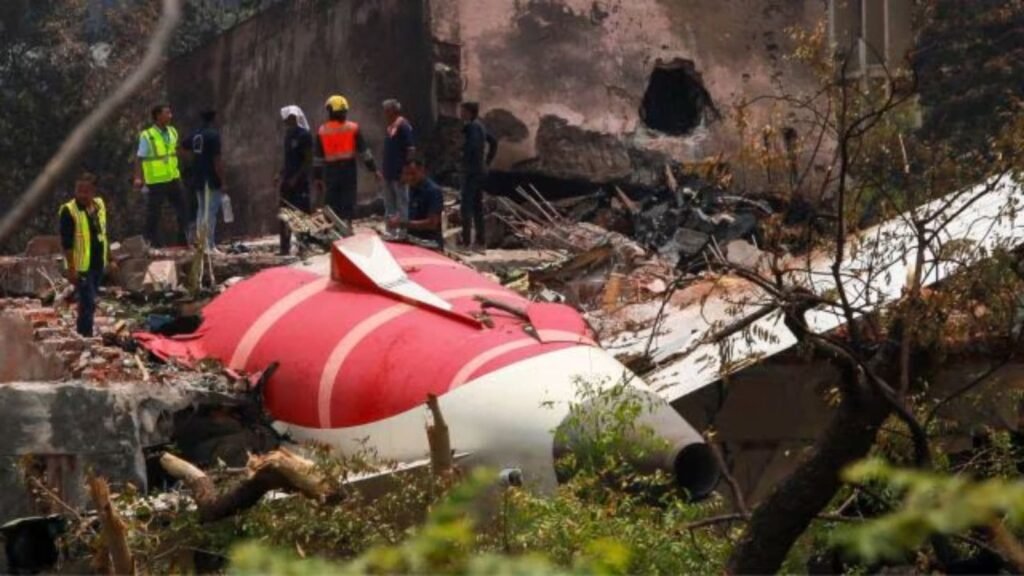The chief of India’s Aircraft Accident Investigation Bureau (AAIB) issued an appeal Thursday, urging the public and the media to “refrain from spreading premature narratives” around the ongoing investigation into the tragic crash of Air India flight AI 171 in Ahmedabad on June 12. In a public appeal, AAIB Director General GVG Yugandhar said that sections of the international media are “repeatedly attempting to draw conclusions through selective and unverified reporting”, and termed it “irresponsible” as the investigation is still on. Reports by a few US-based publications have suggested that deliberate action by one of the pilots was most likely the cause of the crash in which 260 persons perished—241 of the 242 people on board and 19 on the ground.
Yugandhar said that the preliminary report only attempts to only provide information on what happened in the crash, and that it is too early to arrive at any definite conclusions, adding that the final report will contain the root causes of the crash. This is Yugandhar’s first public statement since the fatal air crash, and comes at a time when speculation is rife over the probable causes of the accident—the worst aviation disaster involving an Indian airline in four decades.
“While the accident of this dimension has drawn public attention and shock, however, it needs to be appreciated that this is not the time to create public anxiety or angst towards safety of Indian Aviation Industry, particularly on the basis of unfounded facts,” Yugandhar said.
The AAIB DG also said that the AAIB will also publish updates of technical and public interest “as and when required”. Scarce flow of official information, absence of regular updates and briefings on the investigation were flagged by a number of experts and industry watchers. According to the AAIB chief, the investigation into the crash—“the most devastating accident in recent aviation history”—is being undertaken in a “rigorous and most professional manner” as per AAIB Rules and international protocols.
“It is essential to respect the sensitivity of the loss faced by family members of deceased passengers, crew of the aircraft and other deceased persons on ground. It has come to our attention that certain sections of the international media are repeatedly attempting to draw conclusions through selective and unverified reporting. Such actions are irresponsible, especially while the investigation remains ongoing. We urge both the public and the media to refrain from spreading premature narratives that risk undermining the integrity of the investigative process,” Yugandhar said.
The AAIB’s preliminary investigation report, released a month after the accident, said that the Air India Boeing 787-8 aircraft crashed after both its engines were starved of fuel as the two fuel control switches transitioned from ‘RUN’ to ‘CUTOFF’ position within a second of each other moments after lift-off. From the cockpit voice recorder data, the preliminary probe report notes that one of the pilots asked the other why he cut off the fuel, to which the other pilot responded saying he did not.
To be sure, the report doesn’t mention that fuel control switches—which allow and cut fuel flow to the plane’s engines—moved physically, and uses the term “transitioned” to describe the change of mode from RUN to CUTOFF. It also does not state these were moved by either of the pilots. However, the selective information presented in the report had many believing that it implicitly pointed a finger at the pilots.
Story continues below this ad
“The purpose of the AAIB’s investigation and preliminary report is to provide information about ‘WHAT’ happened. The preliminary report has to be seen in this light. At this stage, it is too early to reach to any definite conclusions. The investigation…is still not complete. The Final Investigation Report will come out with root causes and recommendations,” he added.
Top officials of the aviation ministry, experts, and industry insiders maintained that jumping to any conclusion at this early stage of the investigation just based on limited information in the initial report wouldn’t be appropriate. There is a long way to go for the investigation and a lot could change as the probe progresses over the coming months, they said. The report, too, clearly mentions the disclaimer that it is based on “preliminary facts and evidence”, and that the information it contains is “preliminary and subject to change”.
According to experts, the investigators should now focus on unearthing the cause behind the transitioning of the fuel control switches, which are used to allow and cut fuel supply to the engines. There is considerable speculation on whether the switches were flicked by one of the pilots—inadvertently or otherwise—or whether the transition signal to the system was due to any technical, mechanical, or software issue. The report did not issue any recommendation to other operators of the Boeing 787-8 aircraft and its GE engines, suggesting that at this stage, the investigators do not have a reason to believe that there was any issue with the plane or its engines.
© The Indian Express Pvt Ltd


